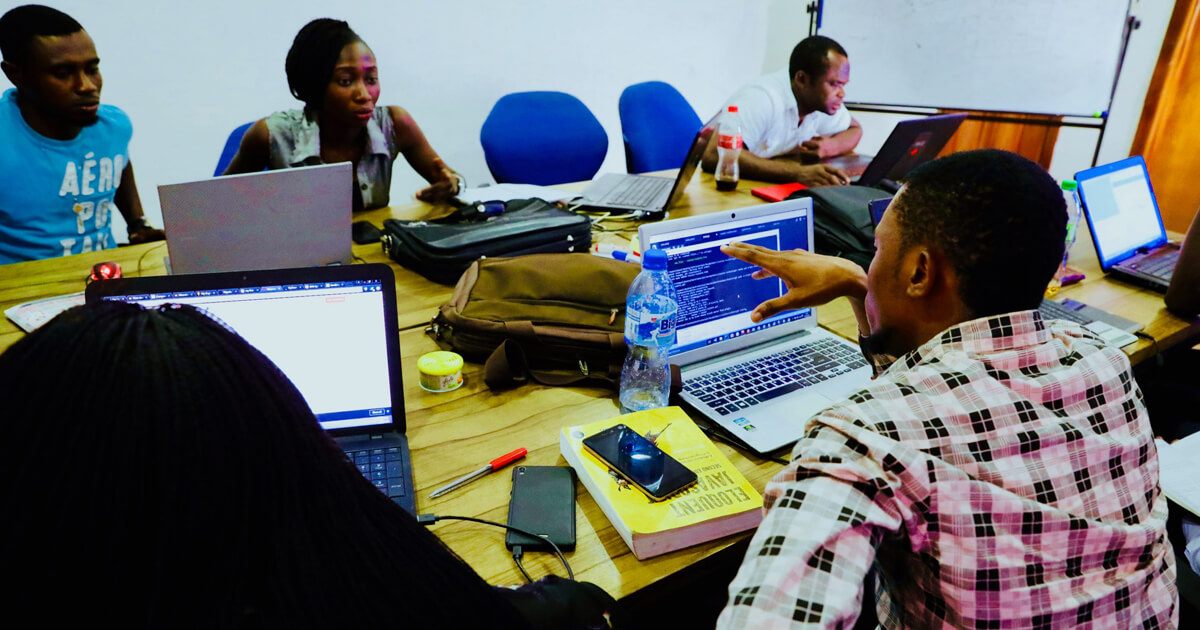In July 2019, UnitedHealth Group announced a five-year, $8.25 million investment in four HBCUs: Clark Atlanta University, Morehouse College, Morehouse School of Medicine and Spelman College. The initiative, which came a year before American companies started committing what would total $50 billion towards racial equity, has now developed into the Atlanta University Center (AUC) Data Science Initiative, expanding access to training for minority undergraduate students.
Through the initiative the AUC is highlighting the interdisciplinary nature of data science.
“We seek to diversify talent in the data science workforce,” Dr. Talitha Washington, the initiative’s inaugural director, told The Plug. But data science isn’t specific to just one discipline or career. The definition “is still evolving, as is the definition of who a data scientist is.”
Yet this ambiguity offers vast opportunity which the initiative is capitalizing on, serving the students and faculty of the AUC through a wide range of curriculum, education and research support.
Developing talent and creating knowledge
One element of the initiative’s work is hosting seminars, ranging from “The Black Revolution in Data Science” to “Data Visualization and the War on Drugs.” They have also given at least $97,000 in mini-grants for modules, courses, research projects and programs across the four schools. One class module, for instance, promises students the chance “to construct a dataset that quantitatively documents Black women and girls’ experience with police violence.”
Their programming has also included a day-long symposium, named after sociologist and activist W.E.B. Du Bois, that featured speakers like Atlanta Mayor Keisha Lance Bottoms and Dr. George French, the president of Clark Atlanta University.
Brianna Powell, a second-year MBA student at Clark Atlanta, helped start the AUC Data Science Club for undergraduate and graduate students.
The AUC will be providing further resources to students interested in learning about data science. The club has held events with AUC alumni who now work at companies like Amazon, and has participated in a competition to create solutions utilizing social media data to eliminate child trafficking.
Social justice and data science
That competition wasn’t just a good learning experience in data science for students. Dr. Washington said it is an example of how the initiative looks for projects “that really integrate and address what’s happening in our lives, what’s happening in our community, so we can bring forth solutions.” She also says the initiative is supporting data science research and teaching to address social justice for Black lives.
However, data has also been used, whether intentionally or unintentionally, in ways that harm people of color. The Data Justice Lab is documenting this harm, in one instance by looking at algorithms used to predict future crimes, which are inaccurately and disproportionately being applied to Black defendants.
Powell, who will graduate in July, is looking to address these harms. “I want more implementation of Black or diverse thought into the statistics because the numbers reflect the thinking of the data scientist,” she said.
Looking at the future
Training more AUC students in data science is on the horizon. In July, incoming freshmen will have the opportunity to explore applications of data science and career paths before they step on campus through the week-long Data for Social Good program.
Rising seniors and recent graduates can take advantage of Open Doors by Open Source, a summer program that will give them the chance to enhance their software development skills, network with Black computing professionals and prepare for job interviews, all aimed at diversifying the computing workforce.
Dr. Washington said the AUC will have new data science hires in the fall that they have been intimately helping and been involved with, adding that they will also be launching a minor at the undergraduate institutions next year, and eventually adding majors and graduate programs. There are also plans to expand into the larger community, with certification programs for the workforce as well as programming for K through 12 students.
Several projects are coming from the Data Science Initiative, with the aim of UnitedHealth’s initial multi-million dollar investment to spur new activity and increase representation. “We’re akin to a startup. So that really was an investment in a startup here in the Atlanta University Center to diversify the data science workforce.”








